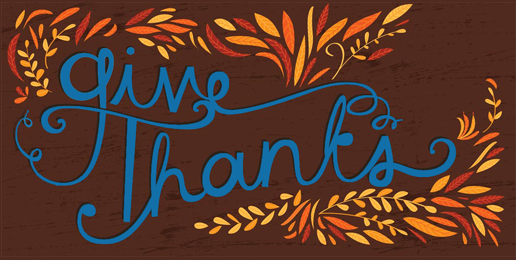
Thanksgiving, especially in recent years, is a neglected holiday. Sandwiched between Halloween and Christmas, and overshadowed by Black Friday, people know Thanksgiving is there, but many don’t put much thought into it until they have to start planning family, food and travel. In recent years, Halloween has become a more culturally celebrated holiday than Thanksgiving. There was even a fun little trend going around social media where you’d show a picture of yourself on Oct. 31 ready for Halloween, and then on Nov. 1 ready for Christmas with Thanksgiving not even an afterthought. There’s just not much societal excitement for Thanksgiving, which is interesting – but it makes sense. Thanksgiving doesn’t fit the ‘cultural narrative’ of self-focus that has been set up.
The first Thanksgiving is widely regarded as having been celebrated by the Mayflower pilgrims in 1621. It had been an incredibly difficult winter (about half of the pilgrims had died from disease or other hardships), and the summer wasn’t looking much better. But God provided by sending Squanto to teach them how to grow food and fend for themselves, as well as secure a peace treaty with the neighboring Native American tribes. In the fall of that year, they held a feast to celebrate and thank God for His provision.
The Pilgrims’ Native American neighbors joined them for the three-day feast.
The next Thanksgiving took place in 1623 after a miraculous harvest. It had been an awfully dry summer, and the crops were wilting and dying. The pilgrims set aside a “day of humiliation to seek the Lord by humble and fervent prayer.” For most of the day the skies were clear and the weather hot, but towards evening it became overcast, and eventually it rained. This miraculous answer to prayer accorded the pilgrims a plentiful harvest, and they again set aside a day to give God thanks.
Thanksgiving didn’t become a national holiday until October 3, 1863, when President Abraham Lincoln declared it so, urging Americans to remember that the Lord is the giver of gifts, and that He still brought them good that year despite the war:
“No human counsel hath devised nor hath any mortal hand worked out these great things. They are the gracious gifts of the Most High God, who, while dealing with us in anger for our sins, hath nevertheless remembered mercy.”
Historically, Thanksgiving has been a holiday where time is set aside to praise and give thanks to the Lord. As our society claws its way further from Biblical truth, that’s going to be more and more unattractive. Halloween was already about dressing up, candy and gore, and Christmas can be twisted to focus on Santa Claus and presents, but it’s hard to secularize Thanksgiving. Everything about it – from why we celebrate to how we celebrate is about thanking God for Who He is and what He has done for you. It’s inherently religious (Who are you thanking?), and it’s inherently selfless (you have to look outside of yourself). A culture that focuses on and idolizes self as much as ours does tends to find a holiday that’s all about Someone else unappealing.
God is so good, and He has given us so much to be thankful for, that it’s worth it to set apart the time to give Him thanks and worship Him. Keep that in mind this Thanksgiving.






















